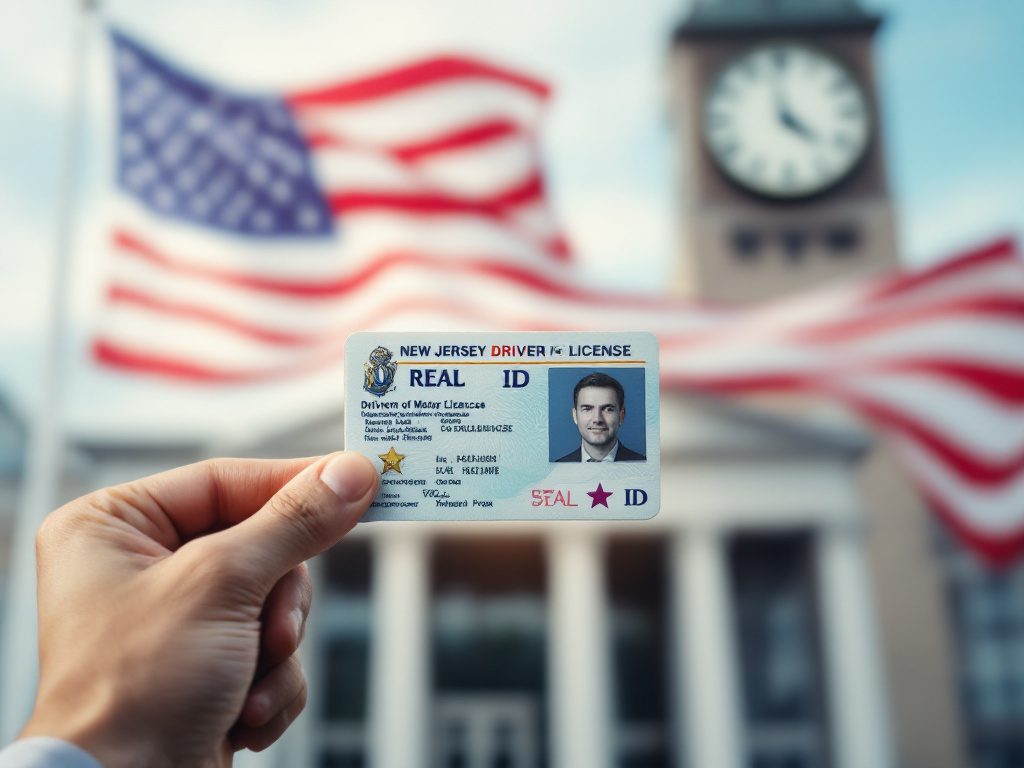Scrambling to Catch Up: New Jersey’s Tardy REAL ID Rollout
Imagine arriving at the airport for your long-awaited family reunion, tickets in hand, only to be turned away because your driver’s license is no longer enough to get you through security. This is the looming reality for thousands of New Jersey residents as the federal government prepares to enforce REAL ID requirements on May 7, 2025. As that deadline ticks closer, New Jersey finds itself at the back of the pack—holding the nation’s lowest rate of REAL ID compliance, a stunning 17%, as revealed by state officials.
The urgency is palpable. In response, Governor Phil Murphy and New Jersey Motor Vehicle Commission (NJMVC) Acting Chief Administrator Latrecia Littles-Floyd have announced an ambitious expansion: “REAL ID Tuesdays.” This program will add roughly 5,200 appointments every other Tuesday at licensing centers across the state, with bookings opening on May 5. The move is a public sprint to make up lost ground, following years of delays exacerbated by the COVID-19 pandemic and bureaucratic inertia. As the walls close in on the May deadline, many residents are left scrambling—not because of personal neglect, but because the state’s rollout has been slow and under-resourced.
Experts have long warned that New Jersey’s implementation lag—despite being among the very last in the nation to offer the federally compliant ID—could trigger chaos at airports and federal buildings. According to NJMVC spokesperson William Connolly, the state has been issuing REAL IDs since September 2019 but has struggled to keep up with demand. Today, the agency processes about 23,000 REAL IDs per week. Yet the backlog has persisted, with appointment slots filling up within moments of release—a sign that state resources and capacity haven’t matched the challenge.
What’s at Stake: Security, Mobility, and Equity
What exactly does REAL ID involve, and why is it such a critical issue for millions of New Jerseyans? Born out of the 9/11 Commission’s recommendations, the REAL ID Act set strict federal requirements for state-issued identification—a measure designed to bolster national security but with complex ripple effects in everyday life. Starting May 7, 2025, TSA agents and federal officers will require a star-marked REAL ID, U.S. passport, or another federally approved document for anyone boarding domestic flights or entering certain federal facilities.
This transition is far from trivial. According to a Pew Research Center study, almost three in ten Americans may be barred from flying domestically or fulfilling basic civic functions if they’re caught without compliant ID after enforcement begins. For older residents and lower-income families—less likely to hold a passport—this presents a serious risk of being grounded, literally and figuratively. Adding insult to injury, the upgrade itself costs $35, an $11 premium over a standard license, raising questions about affordability and access, especially for the most vulnerable.
The state’s unique demographic makeup fuels another wrinkle: With roughly 79% of New Jerseyans holding valid passports, according to state data, many have overlooked the need for a REAL ID altogether. The result? A split system where those with international means breeze by while others face new administrative hurdles for basic freedoms such as travel, job entry, or even jury service.
“This isn’t just about complying with federal mandates—it’s about guaranteeing every resident the freedom to move, work, and participate fully in society. Anything less is an unacceptable erosion of our basic rights and values.”
— NJMVC customer advocate Maria DeLeon
For many, the hurdles extend beyond price tags. Applicants must navigate the “2 + 1 + 6 = REAL ID method”: two documents proving address, one showing Social Security status, and six points of identity verification. Critics, including civil rights groups such as the ACLU of New Jersey, argue that this process disproportionately disadvantages those with nontraditional housing, marginalized backgrounds, or older documentation—raising the enduring issue of systemic equity in state policy.
Bureaucracy, Politics, and Progressive Priorities
State leaders now face a reckoning. Conservative commentators may argue that burdensome regulations and federal mandates slow down individual liberties. But the progressive critique cuts deeper—the rollout’s shortcomings expose how underinvestment and lack of administrative modernization hurt ordinary people most. It’s easy to view the latest expansion as too little, too late, a patch applied to a dam already leaking at the seams.
Progress means more than checking an administrative box; it means building infrastructure that serves the whole community—especially those left at the margins. New Jersey has attempted to bridge remaining gaps via mobile MVC units and emergency issuance programs, but these efforts seem reactive rather than visionary. According to Harvard public policy professor Linda Yu, “The success of programs like REAL ID depends not only on regulatory compliance but also on robust, inclusive outreach and accessibility. Staggered expansions don’t substitute for proactive public investment.”
Why should you care? Because this is about more than flying or federal access—it’s a revealing test of state capacity to protect and empower its most vulnerable. When compliance mechanisms become barriers, we betray our shared commitment to equality, dignity, and the right of every person to participate fully in American life. True progressives must demand not just expanded hours but expanded vision—smart investment, deep outreach, and the political courage to make accessibility a lived value, not an afterthought.
New Jersey’s last-minute scramble offers a cautionary tale: Without relentless focus on the collective good and equitable policy design, even well-intended programs can harden divides and deny dignity. As the federal clock runs out, the question remains—will the state meet its promise to all, or just a privileged few?

